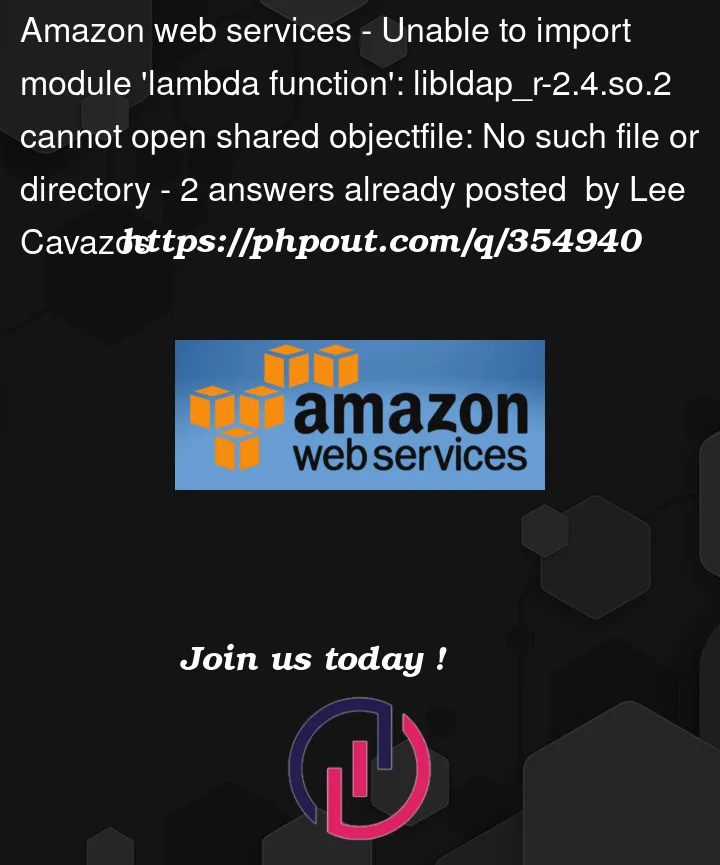I’ve been dealing with this issue for the past few days now. I am trying to create a lambda layer with the following modules: cryptography, ldap3, and bonsai to use in my lambda_function that has a runtime of python3.11 and architecture type of x86_64. I have been using AWS CloudShell to create the lambda_layer zip file.
This is how I installed cryptography and ldap3:
-pip3.11 install
--platform manylinux2014_x86_64
--target=my-lambda-function
--implementation cp
--python-version 3.11.8
--only-binary=:all: --upgrade
cryptography
-pip3.11 install
--platform manylinux2014_x86_64
--target=my-lambda-function
--implementation cp
--python-version 3.11.8
--only-binary=:all: --upgrade
ldap3
These two modules work just fine I can call the module in my lambda function, the issue is with the bonsai module.
Unfortunately, I can’t install the bonsai module like this:
pip3.11 install
--platform manylinux2014_x86_64
--target=my-lambda-function
--implementation cp
--python-version 3.11.8
--only-binary=:all: --upgrade
bonsai
Because I get the following error when I run this command:
ERROR: Could not find a version that satisfies the requirement bonsai (from versions:none)
ERROR: No matching distribution found for bonsai
Therefore this is how I am installing bonsai:
pip3.11 install bonsai --target=my-lambda-function
But when I try to call the bonsai module in my lambda function I get this error:
Unable to import module 'lambda function': libldap_r-2.4.so.2 cannot open shared objectfile: No such file or directory
Does anybody know how to resolve this issue, I’ve completely hit a brick wall. Any help is welcome!




2
Answers
You could try installing from the repo;
pip install https://github.com/BonsaiAI/bonsai-pythonYou could build in CodeBuild and push the artifact to s3.
This article talks about using CloudFormation to create the layer with a ref to an s3 artifact;
https://www.linkedin.com/pulse/lambda-layer-creation-cloudformation-martin-macecek/
You could try to build inside a docker image with the same os as the lambda target os.
That .so file isn’t available to the lambda os. I think that’s the problem to work around somehow.
It’s much easier to build a lambda layer by using the Serverless Framework. I’ve built the layer for you. You can download it through this google drive link. This layer is for the x86_64
python3.11runtime. Remember that you need to set the environment variableLD_LIBRARY_PATHto/opt/libbefore using this layer.Test code:
Test result:
If you don’t trust my code, you can follow the steps below to build it yourself.
Step 1: Add a
requirements.txtStep 2: Add a
DockerfileStep 3: Modify
serverless.ymlStep 4: Build the layer
Simply do
sls package -p pkg, then the layer zip namedpythonRequirements.zipwill be inpkgdirectory.Step 5: Move
.sofiles to a separate directoryDue to a bug in
serverless-python-requirements, you need to unzip thepythonRequirements.zip, create alibdirectory, move.sofiles into the new dir, and re-zip it.